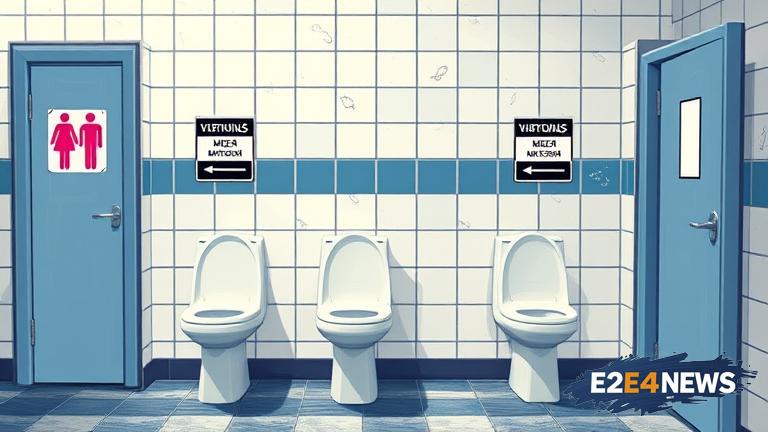A recent development in Virginia has sparked a heated debate over the rights of transgender students in schools. The issue at hand is the access to bathrooms that align with a student’s gender identity, rather than their biological sex. A legal expert has come forward to challenge the Trump administration’s policy on this matter, which has been a subject of controversy since its inception. The policy, which was introduced in 2017, rescinded the Obama-era guidance that allowed transgender students to use the bathrooms that correspond with their gender identity. The Trump administration’s policy has been met with widespread criticism from LGBTQ+ advocacy groups, who argue that it discriminates against transgender students and puts them at risk of harassment and bullying. The legal expert, who has chosen to remain anonymous, has filed a lawsuit against the Gloucester County School Board, alleging that the board’s policy of segregating transgender students from their peers is unconstitutional. The lawsuit claims that the policy violates the Equal Protection Clause of the 14th Amendment, which guarantees equal protection under the law for all citizens. The case has sparked a national debate over the rights of transgender students and the role of the federal government in shaping education policy. The Trump administration has argued that the policy is necessary to protect the privacy and safety of all students, but critics argue that it is a thinly veiled attempt to discriminate against transgender students. The case has also drawn attention to the experiences of transgender students in Virginia, who have reported feeling marginalized and excluded from their schools. Many of these students have spoken out about the difficulties they face in accessing bathrooms that align with their gender identity, and the negative impact that this has on their mental health and well-being. The lawsuit has been welcomed by LGBTQ+ advocacy groups, who see it as an important step towards protecting the rights of transgender students. The case is likely to have far-reaching implications for education policy in the United States, and could potentially set a precedent for other schools and districts to follow. The Supreme Court has previously ruled on the issue of transgender students’ access to bathrooms, but the decision was narrow and did not provide clear guidance on the matter. The court’s decision in the case of Gloucester County School Board v. G.G. was widely seen as a victory for transgender students, but it did not address the broader issue of whether schools can segregate transgender students from their peers. The case has also highlighted the importance of education and awareness about transgender issues, and the need for schools to provide a safe and inclusive environment for all students. Many schools in Virginia have already taken steps to address the needs of transgender students, including providing access to bathrooms that align with their gender identity. However, the Trump administration’s policy has created uncertainty and confusion for many schools, and has led to a patchwork of different policies across the state. The legal expert’s challenge to the policy is seen as an important step towards clarifying the rights of transgender students and ensuring that they are treated fairly and with dignity. The case is likely to be closely watched by educators, policymakers, and LGBTQ+ advocacy groups, who are eager to see how the courts will rule on the matter. As the case moves forward, it is likely to have significant implications for education policy in Virginia and beyond. The outcome of the case could potentially impact the lives of thousands of transgender students, who are waiting to see whether they will be able to access bathrooms that align with their gender identity. The case has also sparked a broader debate about the role of the federal government in shaping education policy, and the extent to which schools should be allowed to discriminate against certain groups of students. Ultimately, the case will turn on the question of whether the Trump administration’s policy is constitutional, and whether it violates the rights of transgender students. The legal expert’s challenge to the policy is seen as an important step towards protecting the rights of these students, and ensuring that they are treated fairly and with dignity.
